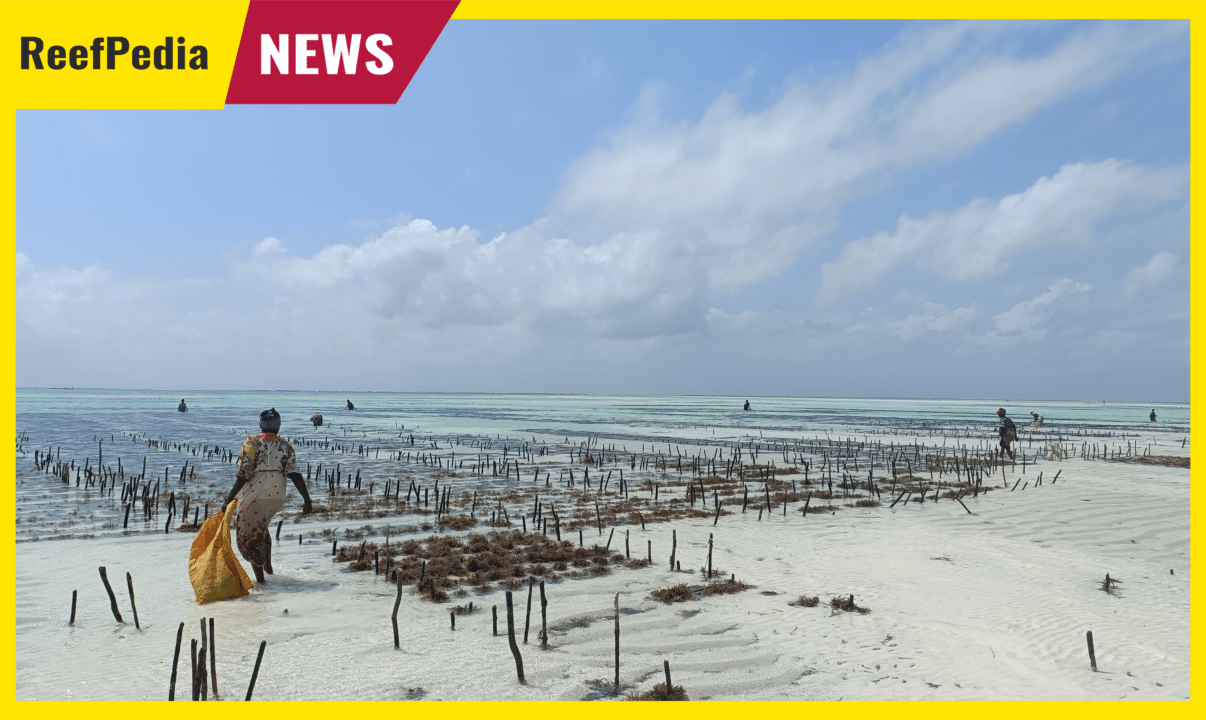Zanzibar is famous not only for its beautiful beaches and cultural richness but also for its unique algae plantations, which are a vital source of income for many local women. On the beaches, you can find them harvesting algae, which they grow on special ropes stretched in the shallow coastal waters. These algae are valued worldwide for their properties and are used in various industries. Although these algae are not commonly farmed in marine aquariums, they are an indispensable part of marine ecosystems. That’s why I decided to speak with one of the women working on the algae plantation – Fatima Juma – who told me about her work, the challenges she faces, and the benefits of algae farming.
Grzegorz: Fatima, thank you for agreeing to this interview. Could you tell us what your daily work looks like?
Fatima: Thank you for your interest. My work mainly involves harvesting algae, which we grow on special plantations in the ocean. Every day we have to adjust to the tides, which are crucial for our work. We work mostly during low tides when the water level is lower, making it easier to access our ropes with the algae. I check if the algae are healthy and whether they haven’t been damaged by currents or strong waves, and then I harvest those that are mature (which have a dark brown color). After harvesting, we dry them in the sun, which is another important task.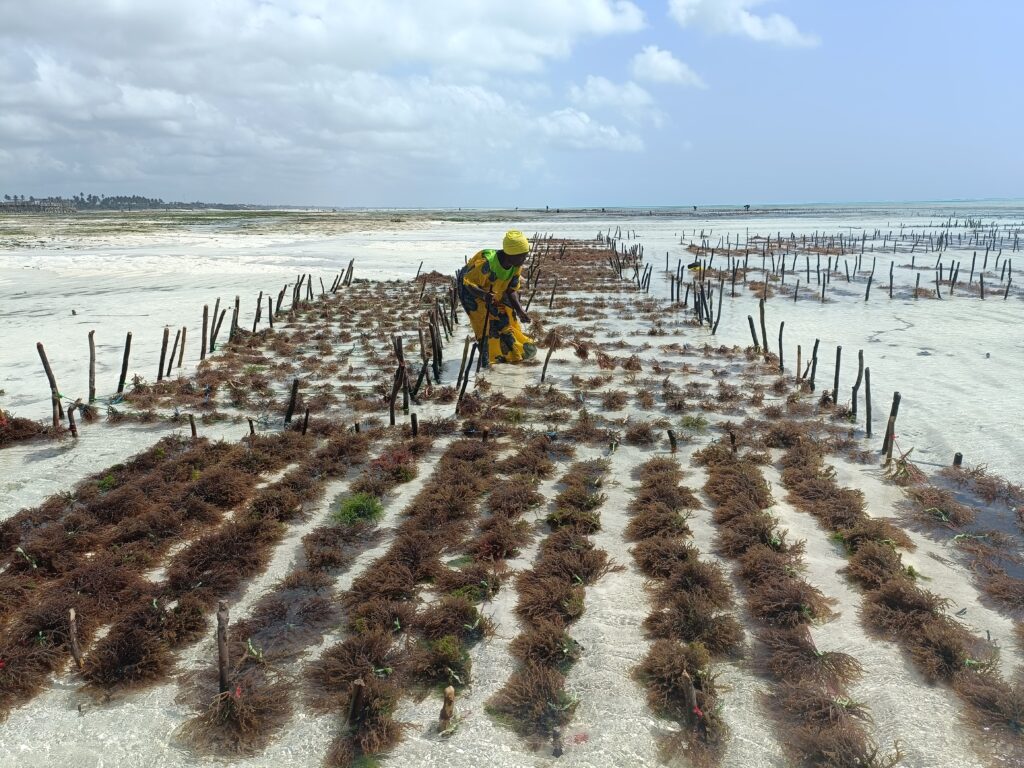
Grzegorz: What types of algae do you grow on your plantations?
Fatima: We mainly grow species such as Eucheuma and Kappaphycus. They are valued worldwide. Eucheuma is a type of algae grown on our plantations. Their color varies depending on environmental conditions – from dark brown and red to lighter, yellowish shades in areas with high sunlight. These algae provide carrageenan, which is used in the food and cosmetics industries, and they grow very quickly. Kappaphycus is also an algae species, and like Eucheuma, it is an important source of carrageenan used in the food and pharmaceutical industries. Their coloration includes various shades of red, brown, and green, depending on light exposure.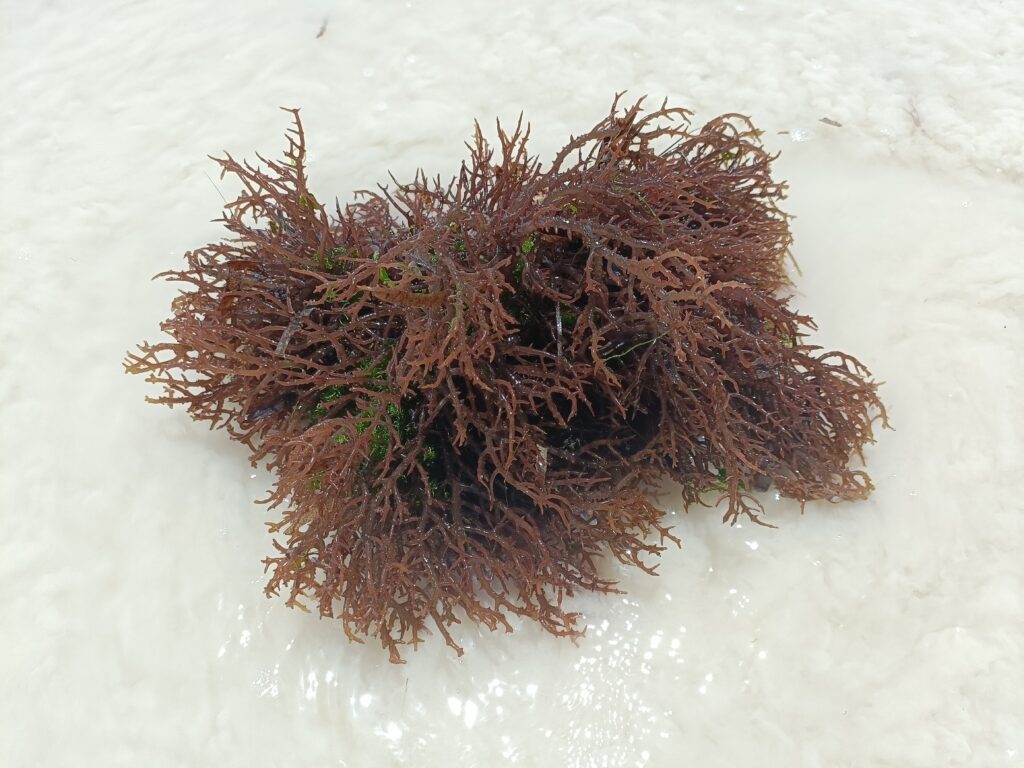
Grzegorz: Fatima, can you tell us about the algae farming techniques you use in Zanzibar?
Fatima: Of course. Algae farming mainly relies on the rope method, which we consider the most efficient. We prepare ropes that are anchored to stakes driven into the bottom of the shallow coastal waters. On these ropes, we tie small pieces of algae, which then grow by absorbing nutrients present in the seawater. The algae need the right amount of sunlight, so we ensure that our ropes are placed in spots and at a suitable depth, so the algae get plenty of sunlight while also being protected from strong waves, which can damage them. The cultivation process usually takes 2 to 3 weeks, depending on weather conditions and water temperature.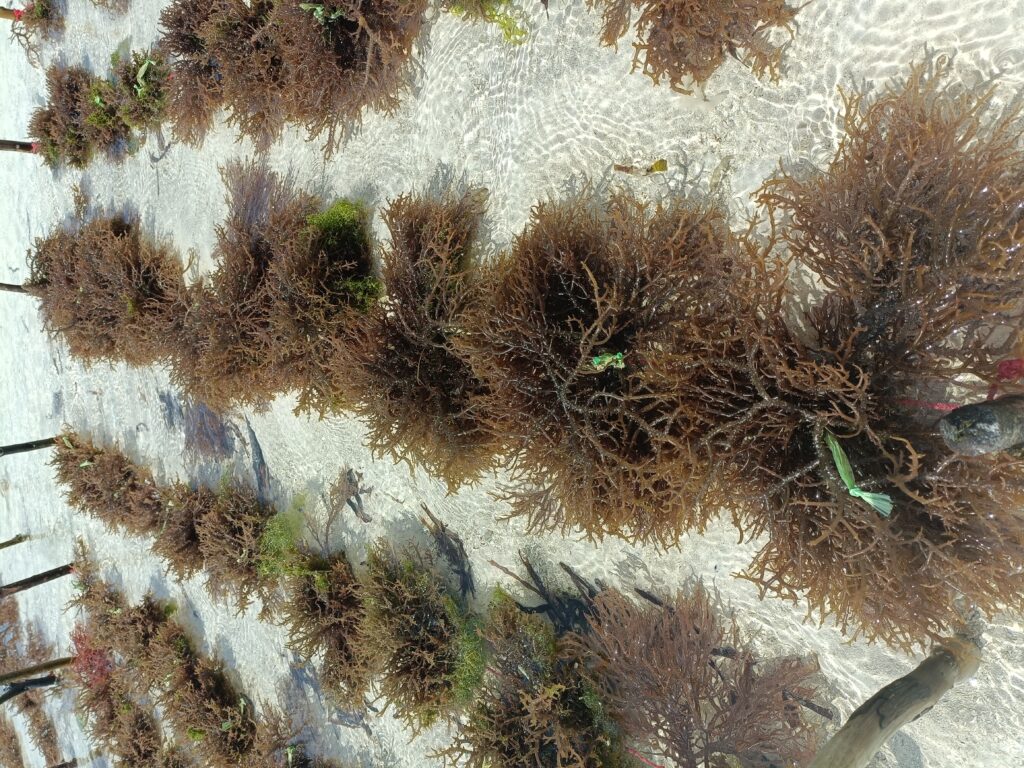
Grzegorz: How long have you been working as an algae harvester?
Fatima: I’ve been involved in algae farming for about ten years now. I started when I was still a young girl. In my family, it’s a tradition – my mother and grandmother also harvested algae. It’s an important source of income for us.
Grzegorz: What do you like most about your work?
Fatima: What I love most is the sense of community. We work together, help each other, and share experiences. I am proud to continue my family’s tradition and support the community I live in. Working in the ocean also gives me a sense of peace—there’s something beautiful about how nature and people can work together.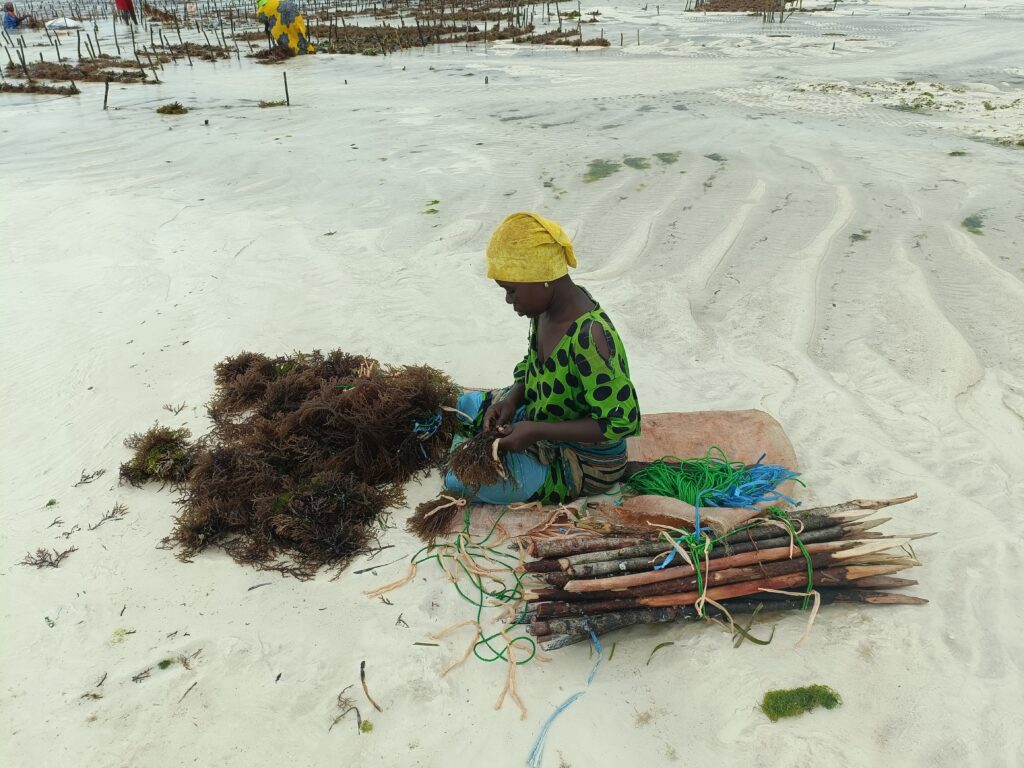
Grzegorz: Can you tell us what the biggest challenges are in your work?
Fatima: The biggest challenge is the unpredictability of the weather and the state of the ocean. Sometimes the currents are too strong, which can damage our algae ropes. Climate change is also an issue, as the rising water temperature negatively affects the growth of the algae. On top of that, the physical effort—working in the water for several hours a day—is very exhausting, but I’m used to it.
Grzegorz: How important are the tides for your work?
Fatima: The tides are crucial for our work. Algae harvesting is mainly possible during low tides when the water level is lower, making it easier to reach the plantations. We have to be very mindful of the tide schedules because working in deeper water is more difficult and dangerous. Planning the harvests at the right times is key to collecting as much algae as possible in the shortest amount of time and repairing any damage caused by strong waves.
Grzegorz: What is the significance of algae for the local community in Zanzibar?
Fatima: Algae are very important for our community. They provide a significant source of income, especially for women who don’t always have other job opportunities. We sell them to companies that produce cosmetics, food, and even medicines. This helps us support our families and invest in our children’s education.
Grzegorz: Do local women make any products from these algae?
Fatima: Yes, some women in Zanzibar have started producing local cosmetics and soaps made from algae. This provides us with an additional source of income. Small-scale production allows us to add value to our product, which can bring greater profits than selling raw algae. However, most of the algae we harvest are sold to companies that process them on a large scale and export them abroad.
Grzegorz: Can you earn a lot of money from algae farming?
Fatima: Earnings from algae farming can vary. Although harvesting algae is hard work and requires a lot of time and effort, it doesn’t always translate into good income. The prices we get for algae can differ depending on the season and global market demand, but they are usually not very high. For many women, harvesting algae is the primary source of income, but it doesn’t always provide financial stability. That’s why it’s important to find ways to increase the value of our products, for example, by producing local cosmetics.
Grzegorz: Have you noticed any changes in algae harvesting over the years?
Fatima: Yes, I have. In recent years, climate change, particularly the rising water temperature, has had the biggest impact on our plantations. The water is getting warmer, which makes it harder for algae to grow as well as they used to. We have to move our plantations further into the ocean, as far as the tides allow, because deeper waters have lower temperatures that support algae growth.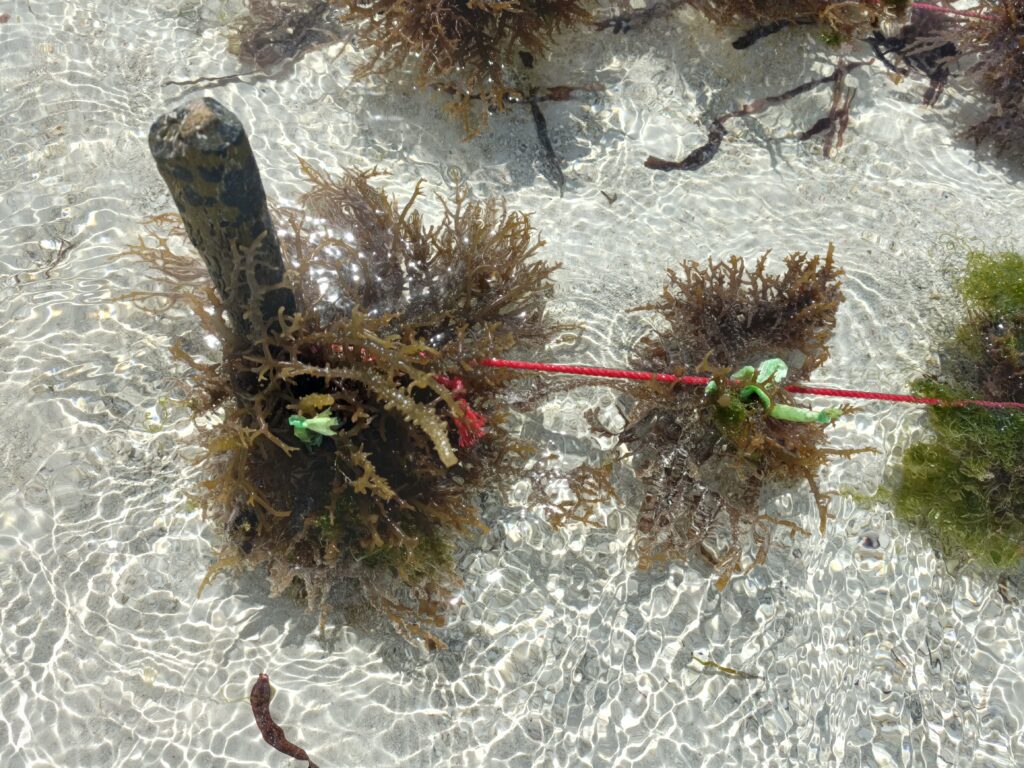
Grzegorz: How do you see the future of algae harvesting in Zanzibar?
Fatima: I’m optimistic, but I realize that we must adapt to the coming changes, especially those related to climate. I see growing interest in producing cosmetics and other algae-based products, which could help us increase our income. It’s also important that we have support from organizations and the government to help us learn new methods of algae farming and find new markets. I hope we can continue to work in harmony with nature, respecting the marine ecosystems around us because they provide us with our livelihood.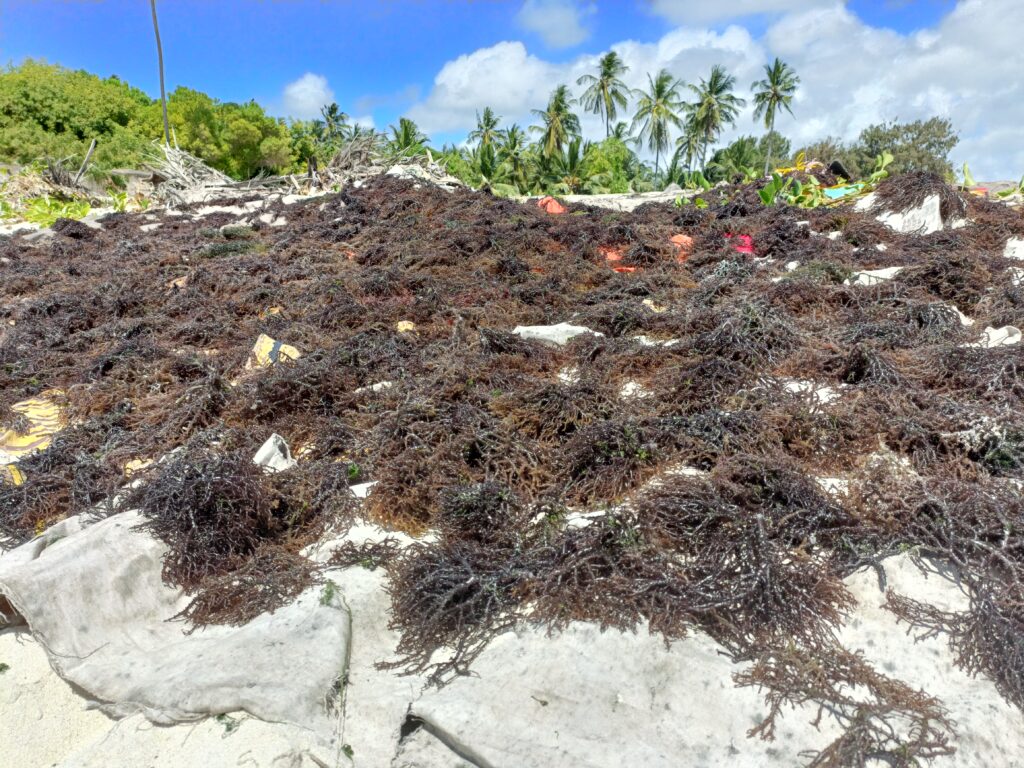
Grzegorz: Thank you, Fatima, for this fascinating interview and for sharing your experiences in algae farming. I assure you that this interview will be published on a marine aquaristics website, ReefPedia. I wish you all the best in life and in your work!
Fatima: Thank you very much. I’m glad I could share my story. I hope more people learn about our work, its importance to our community, and how crucial the ocean is to us as it provides our source of income.
The interview with Fatima Juma was conducted on August 28, 2024, in Zanzibar.
About the author
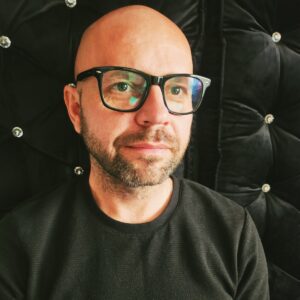
Grzegorz Bubak
My fascination with marine aquariums began over two decades ago when I stumbled upon an article about this topic in a magazine. Since then, the underwater world has become my obsession and passion, shaping my everyday life. I started my adventure with marine aquariums with soft corals, which were my first step into this fascinating world. Over time, captivated by the diversity and beauty of SPS corals, I decided to focus on their cultivation, which continues to fill me with constant wonder.
Thanks to my experience and passion for marine aquariums, I am ready to share my knowledge and expertise with other enthusiasts in this field. I am happy to be part of the Reef Pedia community, which serves as an invaluable source of information for all marine aquarium lovers.

